How Do Tier 4 Emissions Standards Impact Diesel Generator Costs?
Tier 4 emissions standards have significantly impacted the industrial diesel generator market, affecting both manufacturing costs and long-term operational expenses. These regulations, aimed at reducing harmful emissions from diesel engines, have led to increased upfront costs for generators due to the need for advanced emission control technologies. However, they also bring potential long-term savings through improved fuel efficiency and reduced environmental impact. For businesses relying on diesel generators, understanding these cost implications is crucial for making informed decisions about power solutions. This article explores how Tier 4 standards influence generator costs, balancing initial investments against potential long-term benefits in various industrial applications.
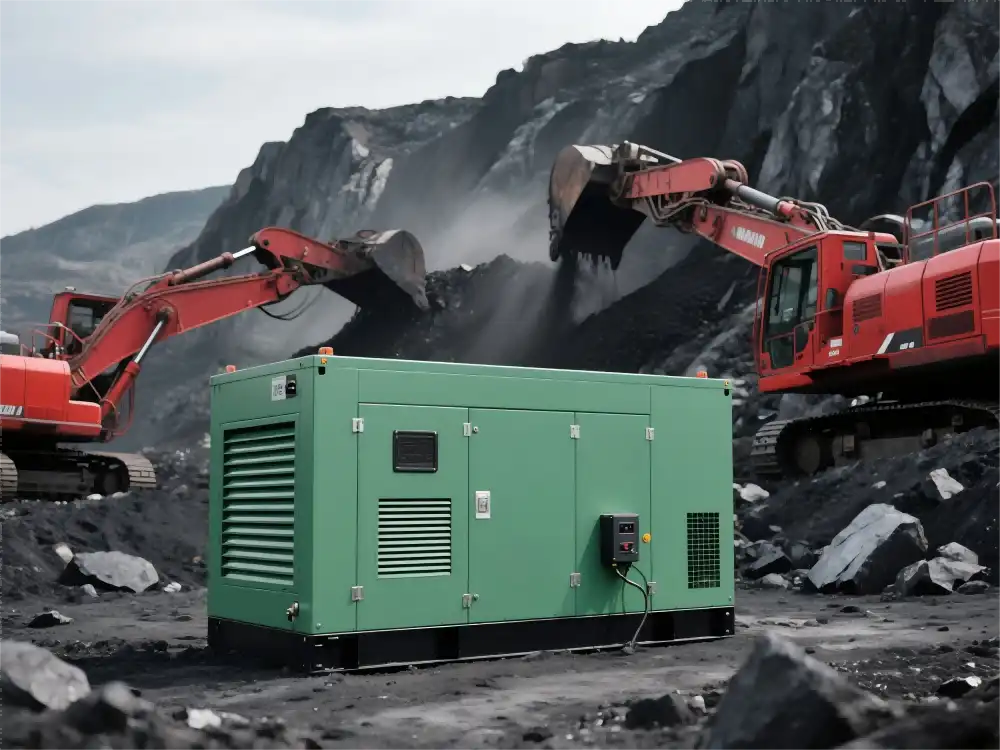
Understanding Tier 4 Regulations for Diesel Engines
Tier 4 emissions standards, implemented by the U.S. Environmental Protection Agency (EPA), represent the strictest regulations for off-road diesel engines. These standards aim to dramatically reduce emissions of particulate matter (PM) and nitrogen oxides (NOx) from diesel engines used in various applications, including industrial diesel generators.
Key Components of Tier 4 Standards
The Tier 4 regulations mandate significant reductions in emissions compared to previous tiers:
- Particulate Matter (PM): Reduction by approximately 90%
- Nitrogen Oxides (NOx): Reduction by approximately 50%
These stringent requirements have necessitated substantial changes in diesel engine design and the integration of advanced emission control technologies.
Technological Advancements to Meet Tier 4 Standards
To comply with Tier 4 regulations, manufacturers have implemented various technologies:
- Selective Catalytic Reduction (SCR)
- Diesel Particulate Filters (DPF)
- Exhaust Gas Recirculation (EGR)
- Advanced Electronic Engine Controls
These technologies, while effective in reducing emissions, have contributed to increased production costs for Tier 4 compliant generators.
Cost-Benefit Analysis: Upgrading to Tier 4 Compliant Generators
The transition to Tier 4 compliant industrial diesel generators involves a careful cost-benefit analysis. While the initial investment is higher, there are several factors to consider when evaluating the long-term value proposition.
Initial Cost Increase
Tier 4 compliant generators typically come with a higher price tag due to:
- Advanced emission control systems
- More complex engine designs
- Enhanced fuel injection systems
- Sophisticated electronic controls
These upgrades can increase the initial cost of a generator by 15-30% compared to non-Tier 4 models.
Operational Benefits
Despite higher upfront costs, Tier 4 generators offer several operational advantages:
- Improved fuel efficiency
- Reduced maintenance requirements for certain components
- Lower emissions-related penalties and fees
- Potential tax incentives for using cleaner technologies
These benefits can offset the initial cost increase over the generator's lifespan.
Regulatory Compliance and Market Access
Investing in Tier 4 compliant generators ensures:
- Compliance with current and future emissions regulations
- Access to markets with strict environmental standards
- Potential competitive advantage in environmentally conscious sectors
For businesses operating in multiple regions or planning expansion, this compliance can be a crucial factor in decision-making.
At Jlmech, we understand the importance of balancing regulatory compliance with operational efficiency. Our range of Tier 4 compliant industrial diesel generators is designed to meet these stringent standards while delivering reliable performance across various applications.
Long-Term Savings: Tier 4 Generators vs. Older Models
When considering the long-term financial implications of Tier 4 compliant industrial diesel generators, it's essential to look beyond the initial purchase price. These advanced generators often provide substantial savings over time, making them a wise investment for many businesses.
Fuel Efficiency Improvements
Tier 4 generators typically offer enhanced fuel efficiency:
- Advanced engine designs optimize fuel combustion
- Improved fuel injection systems reduce waste
- Electronic controls fine-tune engine performance
These improvements can lead to fuel savings of up to 5-10% compared to older models, translating to significant cost reductions over the generator's lifetime.
Reduced Maintenance Costs
While Tier 4 generators have more complex emission control systems, they often require less frequent maintenance in other areas:
- Longer intervals between oil changes
- Extended service life for certain components
- Advanced diagnostics for proactive maintenance
These factors can contribute to lower overall maintenance costs and reduced downtime.
Environmental Impact and Associated Costs
The reduced emissions from Tier 4 generators can lead to indirect cost savings:
- Lower risk of environmental fines or penalties
- Potential for reduced carbon taxes or emissions fees
- Improved corporate image and potential for green certifications
These factors can positively impact a company's bottom line and market position.
Jlmech's commitment to innovation is evident in our latest industrial diesel generator models. Our silent diesel generator 437kVA exemplifies the balance between power and environmental responsibility. With a power output of 437kVA (350 kW) and noise levels below 75 dB at 7 meters, this generator is ideal for noise-sensitive environments such as hospitals, urban construction sites, and data centers. Its rugged design withstands extreme temperatures and humidity, making it suitable for remote mining operations or tropical climates.
Key features of our 437kVA generator include:
- Three-phase power at 380/400V and 50Hz frequency
- Six-cylinder engine with water cooling and electric starting
- Customization options (OEM/ODM available)
- Compact dimensions: 3250mm x 1200mm x 1800mm (trailer-mounted options available)
- Certifications: CE, ISO8528, GB/T 2820-9
- Compatibility with biofuel blends
This generator not only meets Tier 4 emissions standards but also offers advanced features like low noise operation, high efficiency with up to 20% fuel savings, and global compliance with EU Stage V and EPA Tier 4 emission standards. Its scalable design allows for customization with parallel systems, hybrid fuel compatibility, or weatherproofing, making it a versatile choice for diverse industrial applications.
Conclusion
The impact of Tier 4 emissions standards on industrial diesel generator costs is multifaceted. While initial purchase prices are higher, the long-term benefits often outweigh these upfront costs. Improved fuel efficiency, reduced maintenance needs, and compliance with stringent environmental regulations make Tier 4 generators a sound investment for many industries. As businesses navigate the changing landscape of power generation, considering both immediate expenses and long-term savings is crucial for making informed decisions.
For industries requiring reliable, efficient, and environmentally responsible power solutions, Jlmech offers a range of Tier 4 compliant generators tailored to diverse operational needs. With our global expertise, OEM partnerships, and commitment to total cost savings, we provide power solutions that meet current standards and anticipate future requirements. Our 2-year warranty covering mechanical and electrical parts ensures peace of mind and reduced long-term maintenance costs.
Whether you're in the industrial manufacturing sector, construction, healthcare, agriculture, or commercial facilities, our team is ready to assist you in selecting the right generator for your specific needs. For more information about our Tier 4 compliant industrial diesel generators or to discuss your power requirements, please contact us at skala@whjlmech.com. Let Jlmech power your operations with efficiency, reliability, and environmental responsibility.
References
1. Environmental Protection Agency. (2021). "Nonroad Compression-Ignition Engines: Exhaust Emission Standards."
2. Johnson, T. V. (2019). "Review of Diesel Emissions and Control." International Journal of Engine Research.
3. Diesel Technology Forum. (2020). "Clean Diesel Technology for Off-Road Engines and Equipment: Tier 4 and More."
4. Power Systems Research. (2021). "Global Generator Set Market Analysis: Impact of Emissions Regulations."
5. American Society of Mechanical Engineers. (2018). "The Economic Impact of Tier 4 Emissions Standards on Industrial Equipment."
6. International Council on Clean Transportation. (2020). "Cost-Benefit Analysis of Tier 4 Emission Standards for Non-Road Diesel Engines."
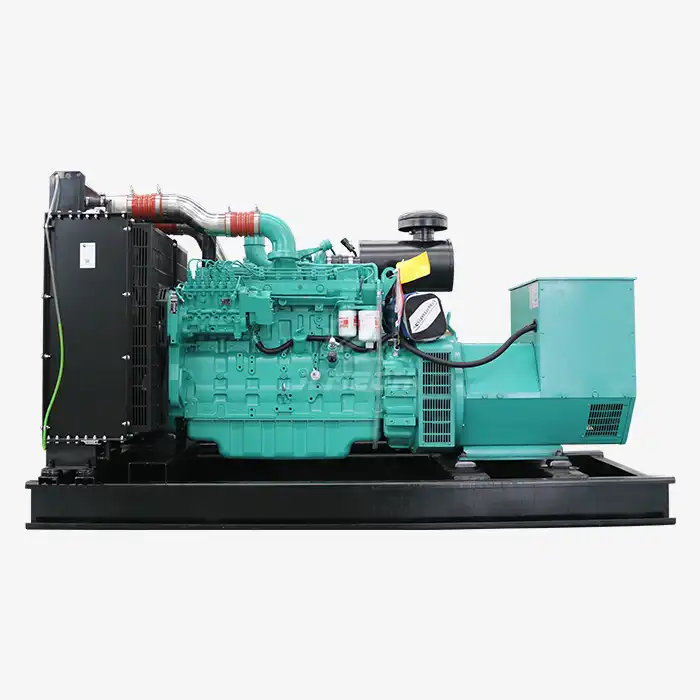 VIEW MOREgenerator 200kw
VIEW MOREgenerator 200kw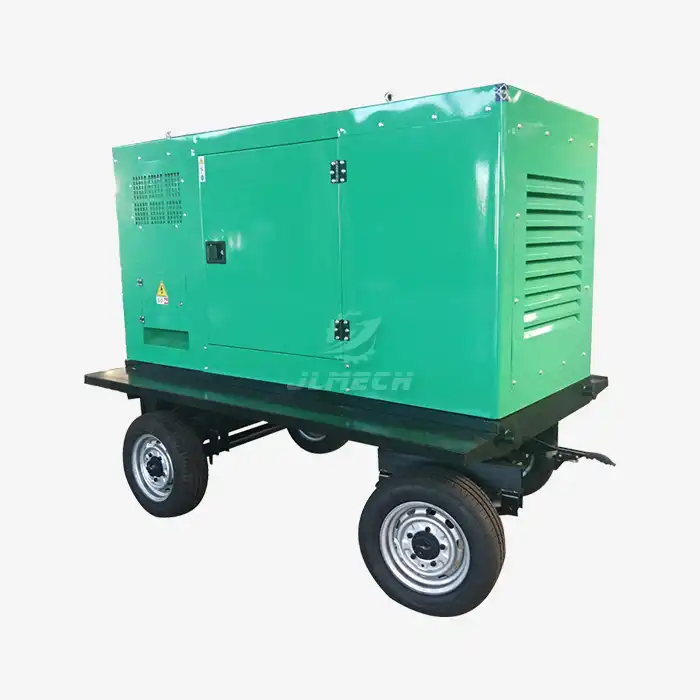 VIEW MORE300KW Mobile Generator Set for Mining Engineering
VIEW MORE300KW Mobile Generator Set for Mining Engineering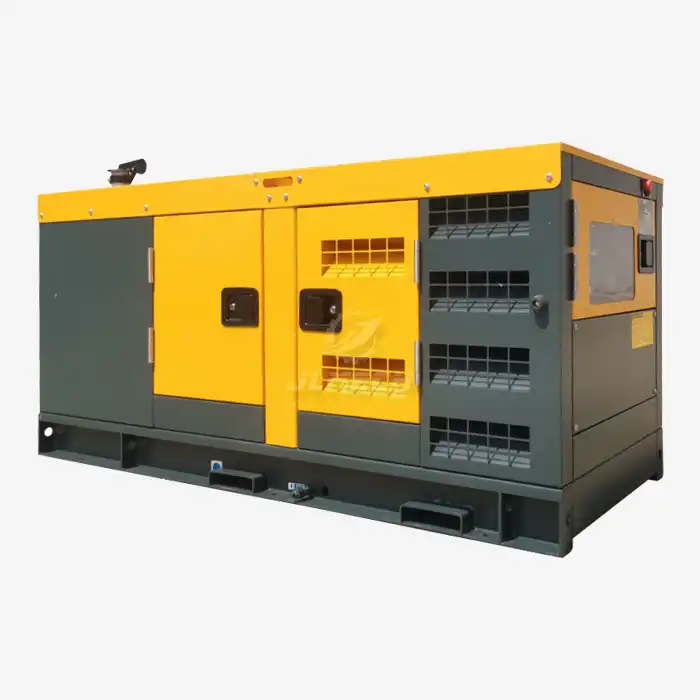 VIEW MORELow noise diesel gen
VIEW MORELow noise diesel gen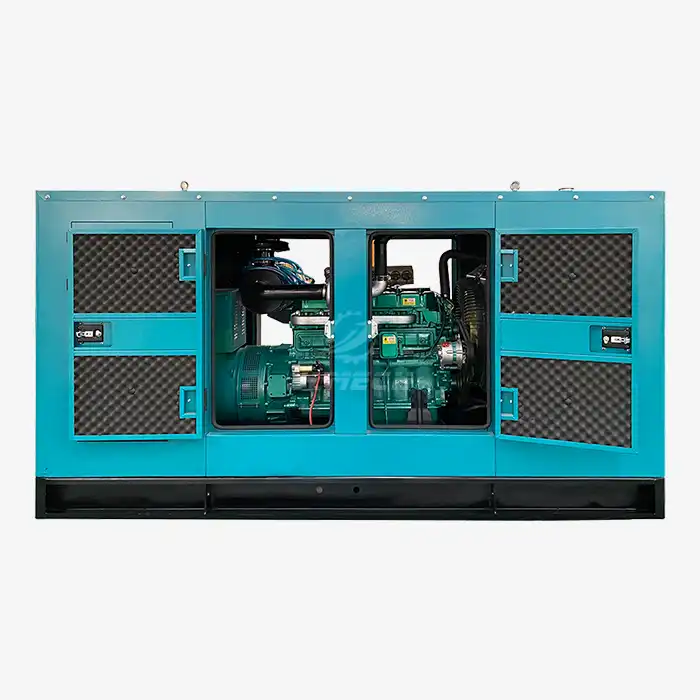 VIEW MOREOptionas ATS system Silent Diesel Generator
VIEW MOREOptionas ATS system Silent Diesel Generator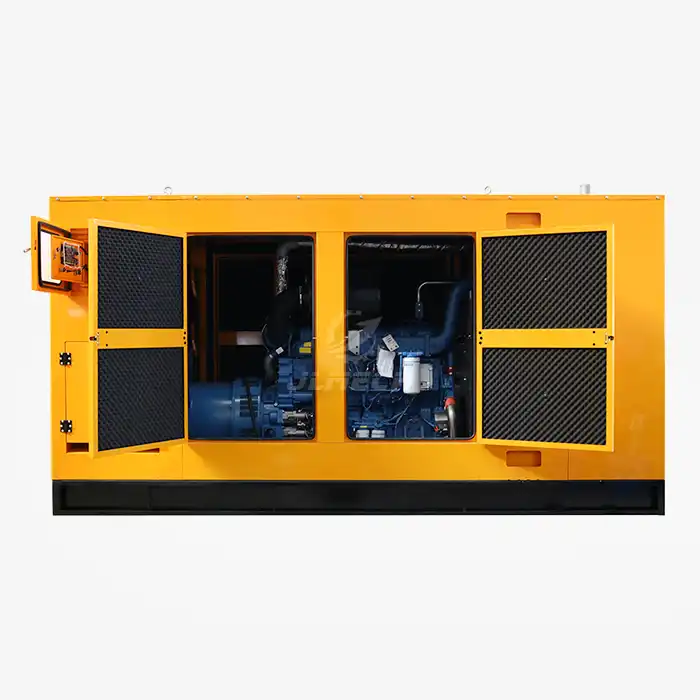 VIEW MORECustomize diesel generator set
VIEW MORECustomize diesel generator set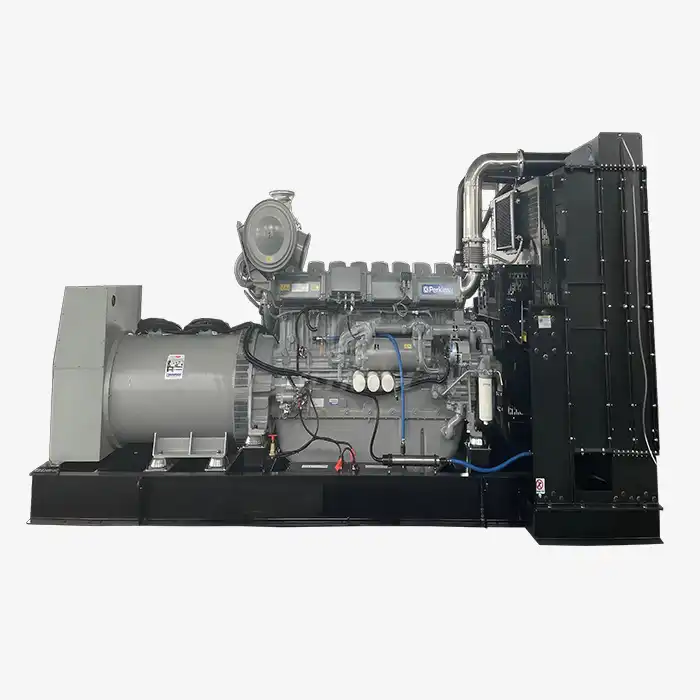 VIEW MOREfuel consumption of diesel generator
VIEW MOREfuel consumption of diesel generator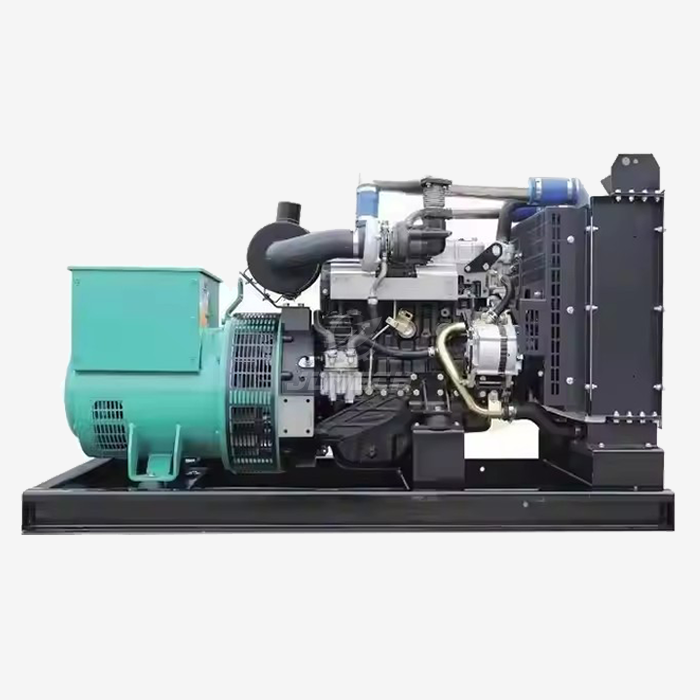 VIEW MOREkubota diesel generator 35kw
VIEW MOREkubota diesel generator 35kw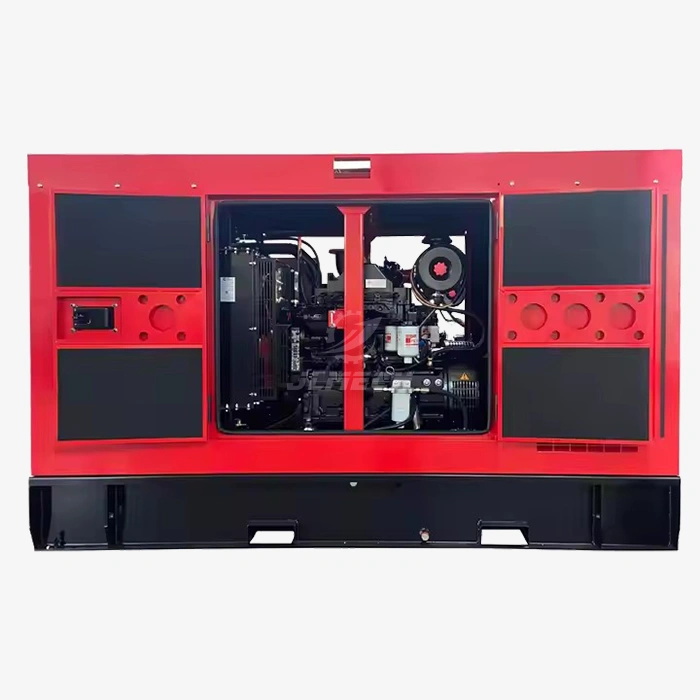 VIEW MOREmute diesel generator
VIEW MOREmute diesel generator



